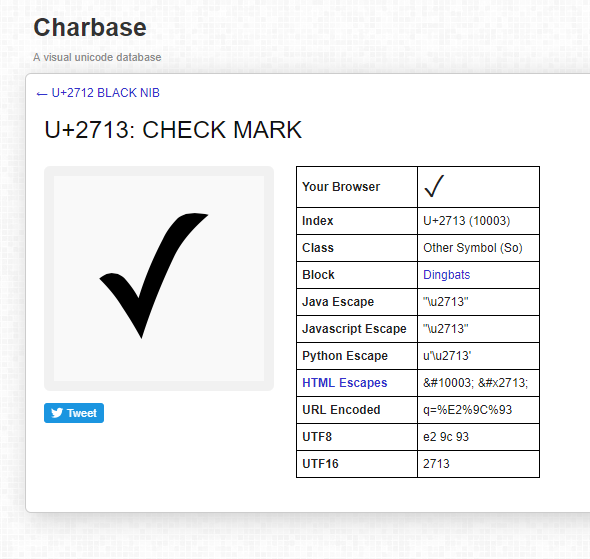I'm not a Ruby dev by trade, but am using Capistrano for PHP deployments. I'm trying to cleanup the output of my script and am trying to add a unicode check mark as discussed in this blog.
The problem is if I do:
checkmark = "\u2713"
puts checkmark
It outputs "\u2713" instead of ✓
I've googled around and I just can't find anywhere that discusses this.
TLDR: How do I puts or print the unicode checkmark U-2713?
EDIT
I am running Ruby 1.8.7 on my Mac (OSX Lion) so cannot use the encode method. My shell is Bash in iTerm2.
UPDATE [4/8/2019] Added reference image in case site ever goes down.


encodemethod isn't available until 1.9. How was it done prior to 1.9? – Variegation